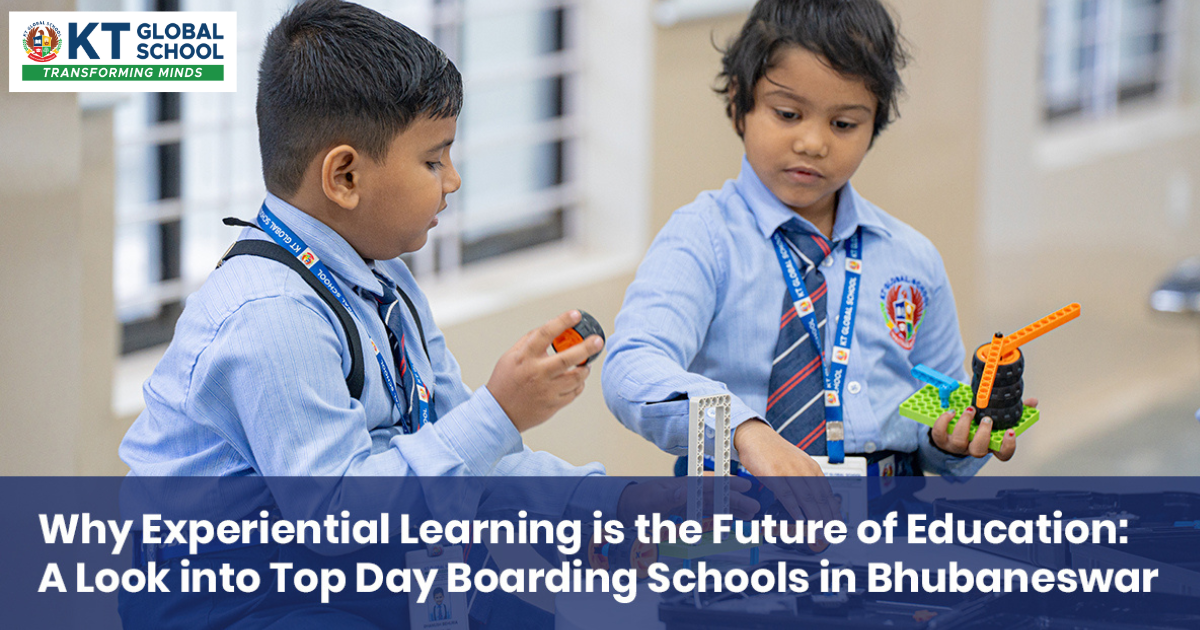- April 16, 2025
- KT Global School
- 0

What is Experiential Learning?
Experiential learning, also known as ‘learning by doing,’ is a student-centered teaching approach that encourages learners to actively engage in experiences and reflect on them to develop deeper understanding. According to the Association for Experiential Education (AEE), experiential education involves direct experiences and structured reflection to build knowledge, skills, and values.
The Importance of Experiential Learning Strategies for Students
Experiential learning strategies for students provide a more meaningful and practical approach to education. Instead of passively absorbing information, students are encouraged to participate in activities that help them connect theoretical concepts to real-world scenarios. This not only makes learning enjoyable but also ensures long-term retention and application of knowledge.
How Does Experiential Learning Work?
- Experiencing:
Students engage in direct experiences, using their senses and observations to interact with real-world situations. foundation for higher education. - Reflecting:
Learners analyze their experiences, drawing connections between their actions and the outcomes.
- Thinking: Students develop abstract concepts and theories based on their reflections.
- Acting:The final stage involves applying learned theories in new scenarios, thus reinforcing the learning process.
- Experiencing:
Skill-Based Learning Theory: A New Approach to Education
Experiential Learning Activities for Classrooms
Incorporating experiential learning activities for classrooms transforms the traditional academic setup into an engaging and interactive space. Schools that integrate these methodologies provide students with an enriching educational experience that extends beyond textbooks. Some innovative experiential learning activities include:
- Science Projects and Robotics Workshops: Encouraging students to participate in STEM-based projects, fostering creativity and technical skills.
- Hands-On Activities: Engaging students in gardening, cooking, and model-making to develop practical knowledge and real-world skills.
- Farm-to-Store Experience: Students participate in agricultural activities such as planting crops, harvesting, and processing food items like popcorn. This hands-on approach teaches them about the food production cycle and sustainability.
- Physics on the Football Field:Learning about force, motion, and energy through sports helps students grasp complex physics and math concepts in an engaging manner.
- Nature Walks and Social Visits:Outdoor excursions allow students to explore biodiversity, ecological systems, and scientific processes, such as hydroelectricity generation. These activities foster curiosity and environmental awareness.
- Field Visits and Internships:Providing exposure to industries and workplaces, helping students understand real-world applications of their learning.
The Role of Schools in Promoting Experiential Learning
- Thematic Classrooms: Learning spaces designed to stimulate curiosity and engagement.
- Mentorship and Guidance: Teachers act as facilitators rather than traditional instructors, guiding students through their experiential learning journey.
- Multi-Dimensional Learning Environments: Schools are expanding learning beyond classrooms, utilizing every space—be it playgrounds, labs, or outdoor landscapes—as an opportunity for discovery.
Why Experiential Learning is the Future of CBSE Education
Schools such as KT Global School have been instrumental in implementing experiential learning strategies for students, offering dynamic classrooms and unique learning environments that foster creativity and analytical thinking. By embracing innovative methodologies, institutions like these set benchmarks in modern education.
Conclusion
Experiential learning is revolutionizing the way students acquire knowledge and skills. By integrating experiential learning strategies for students, schools are paving the way for a more effective and engaging educational experience. The future of CBSE education lies in skill-based learning theory, where students develop critical abilities through hands-on learning and reflection. Schools like KT Global School are leading the way in redefining education through experiential methodologies, ensuring that students not only learn but thrive in real-world scenarios.
